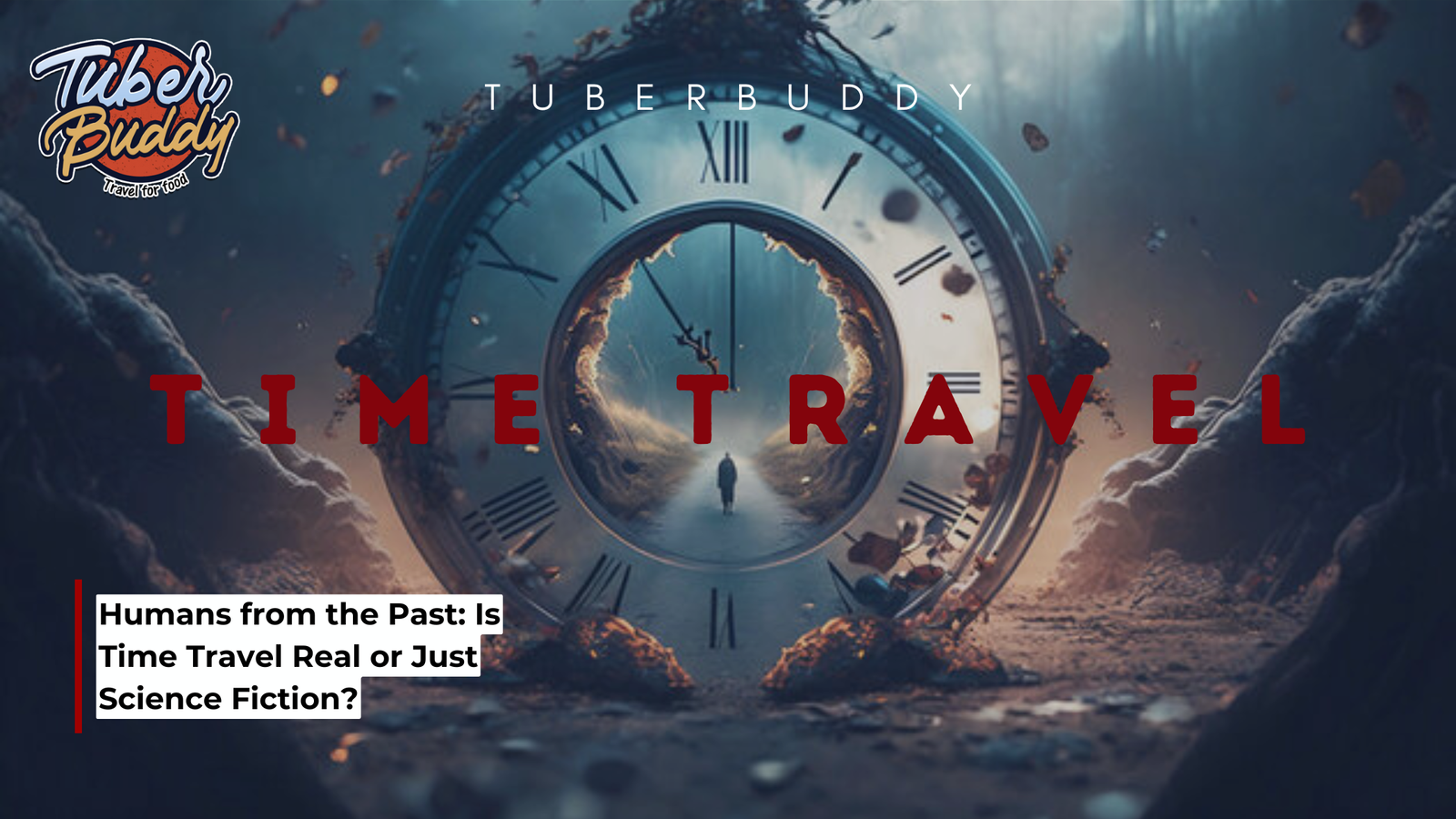Humans from the Past: Is Time Travel Real or Just Science Fiction?

Time travel has long fascinated humanity, sparking imaginations and debates across the world. From classic novels like H.G. Wells’ The Time Machine to blockbuster films such as Interstellar and Back to the Future, the concept of traversing through time has inspired countless theories and stories. But is time travel merely a work of fiction, or is there a possibility that humans from the past could visit the present or future? Let’s explore the intriguing idea of time travel and examine whether it’s scientifically and philosophically feasible.
The Concept of Time Travel
Time travel refers to the hypothetical act of moving between different points in time, much like we move through space. In theory, this could involve traveling to the past, revisiting historical events, or journeying into the future to witness the unknown. While the idea sounds thrilling, the possibility of achieving such a feat is deeply rooted in physics, particularly Albert Einstein’s theory of relativity.
Einstein proposed that time is not a constant—it is relative and can be stretched or compressed depending on speed and gravity. According to his theory of general relativity, time moves slower for objects traveling at speeds close to the speed of light. This concept, known as “time dilation,” provides the scientific foundation for forward time travel. But what about traveling to the past?
Time Travel to the Future: Science Says Yes (Sort Of)
Forward time travel is already proven, albeit in a limited sense. Astronauts aboard the International Space Station experience time at a slightly slower rate than people on Earth due to their high orbital speeds. This phenomenon, known as “gravitational time dilation,” means that when they return to Earth, they are technically fractions of a second younger than their counterparts on the ground.
While this may seem insignificant, it proves that forward time travel is theoretically possible under the right conditions. If humans could build a spacecraft capable of reaching near-light speeds, they could travel far into the future while experiencing only a short duration of time themselves. This concept, though far from practical with current technology, opens the door to future possibilities.
The Challenge of Traveling to the Past
Unlike forward time travel, traveling to the past is far more complex and controversial. Numerous paradoxes challenge the very idea, the most famous being the “grandfather paradox.” This paradox suggests that if you were to travel back in time and accidentally prevent your grandfather from meeting your grandmother, you would never be born. But if you were never born, how could you travel back in time to interfere?
Some scientists suggest that the laws of physics might prevent time travel to the past. Others argue for the existence of “closed time-like curves,” theoretical paths in spacetime that could allow for time loops. These ideas, while intriguing, remain speculative and unproven.
Fascinating Theories and Speculations
The mystery of time travel is enriched by various theories and speculations:
Wormholes:
Wormholes, hypothetical tunnels in spacetime, are often considered potential gateways for time travel. However, no evidence for their existence has been found, and even if they exist, their stability and practicality for travel remain doubtful.Multiverse Theory:
Some physicists argue that traveling to the past might lead to alternate realities. This means any actions taken in the past would create a separate timeline, avoiding paradoxes but leading to infinite possibilities.Time Travelers Among Us:
Conspiracy theories abound about alleged time travelers who claim to have visited the future or past. While these stories are often entertaining, they lack credible evidence and are typically dismissed as hoaxes.
The Philosophical Perspective
Time travel isn’t just a scientific debate; it also raises profound philosophical questions. If time travel were possible, it would challenge our understanding of free will, causality, and the nature of time itself. Are past, present, and future already determined, or is time a flowing, dynamic force?
Moreover, if humans from the past or future were among us, how would we recognize them? Would they blend seamlessly into society, or would their knowledge and behavior reveal them as visitors from another time?
Is Time Travel Real?
While time travel is an enthralling concept, current scientific evidence doesn’t support its feasibility beyond the proven effects of time dilation. However, the continued exploration of physics and cosmology might unlock new possibilities in the future.
The allure of time travel lies in its ability to stretch the boundaries of human imagination. Whether or not we ever find a way to traverse time, the idea continues to inspire us to dream big, ask bold questions, and explore the mysteries of the universe.
Conclusion: A Fascinating Mystery
The mystery of time travel—whether humans from the past or future could ever walk among us—remains unsolved. For now, it occupies a unique space between science and fiction, challenging our understanding of the cosmos. Perhaps the real beauty of time travel lies not in its possibility, but in its ability to inspire us to look beyond the limits of what we know.
